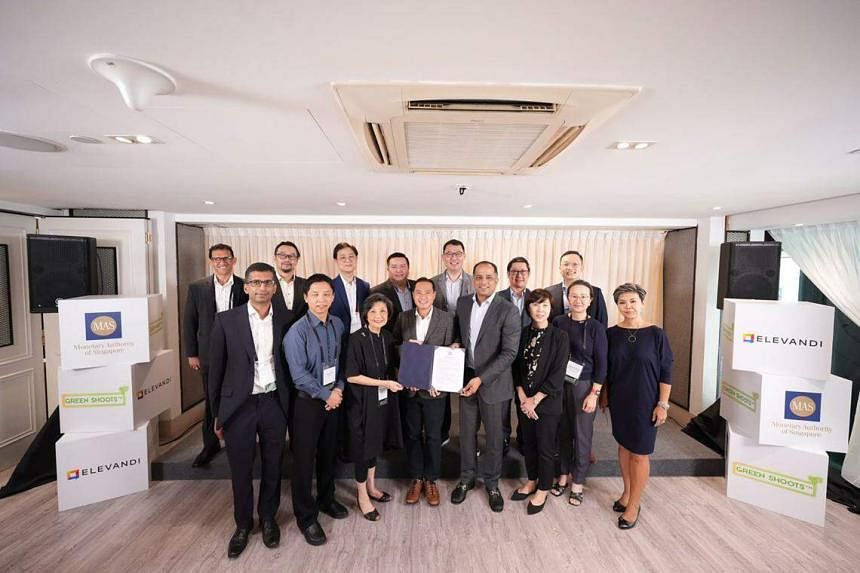SINGAPORE - As demand for artificial intelligence (AI) and data analytics continues to grow, especially with the advent of intelligent chatbots like ChatGPT, the need for talent in the area has become a concern for many industries both here and across the globe.
To address the financial sector’s artificial intelligence and data analytics (Aida) talent shortage, Senior Minister of State for Communications and Information Tan Kiat How announced the launch of the Aida Talent Development Programme on Monday at a seminar hosted by the Monetary Authority of Singapore (MAS), in collaboration with Elevandi, a non-profit organisation set up by the authority to foster connections in the fintech sector.
Under the programme, the MAS will work closely with financial institutions, training providers and institutes of higher learning (IHLs) to increase the supply of Aida talent.
Along with the launch of the talent development programme, an Aida Talent Consortium was also set up, with members signing a memorandum of understanding to mark their commitment to working towards building AI capabilities in Singapore’s financial sector through increasing the supply of talent.
The Aida consortium will comprise various organisations from both the education and training sector and the financial sector.
To facilitate collaboration, the consortium members will work closely with one another to co-curate and develop AI talent programmes that have a strong financial sector application.
These organisations include national research and development programme AI Singapore, IHLs such as the National University of Singapore, and training providers such as NTUC LearningHub.
From the financial sector, members include investment management firm Arabesque Asset Management Singapore and major local banks such as OCBC Bank.
The consortium will facilitate the matching of financial institutions to the training and education institutions, which are able to then curate and design programmes to meet the needs of the industry.
It will also be designing a skills progression pathway that will serve as a road map for the roles and skills the sector requires.
Speaking at the launch, Mr Tan said AI is now used across many industries in Singapore, and has a wide range of uses and applications.
He added that there is an acute shortage of talent now, and stressed that the development of AI talent is a priority.
“For the talent development programme to succeed, the Government and industry need to work closely together to understand the specific needs of the sector, in order to introduce targeted approaches to close the current gaps,” said Mr Tan.
“I believe that by working together – our ecosystem partners, stakeholders in the financial sector, government, private sector, as well as training institutes and IHLs – we can create a vibrant ecosystem for AI talent, innovation, experimentation, and create many good jobs and opportunities for Singaporeans.”
MAS chief fintech officer Sopnendu Mohanty said: “Supporting Aida adoption is one of our key strategies to help financial institutions evolve and adopt game-changing AI technology. However, the shortage of talent limits the industry’s potential for growth.
“With the Aida Talent Development Programme, we aim to ignite Aida adoption across the industry and equip the local workforce with in-demand technical skills.”
Dr Qasim Nasar-Ullah, director of Arabesque Asset Management Singapore, described the programme as a “win-win for everyone”. He told The Straits Times that finding the right talent is high on the firm’s list of priorities, and being part of the programme can help it do so.
“We are always on the hunt for new candidates, and it is quite a restricted market... anything that can be done to promote candidates to look in the area would be very helpful,” he said.
“The onus really falls on employers to double down on efforts to (seek out talent), so any support that we can get really makes a big impact for us.”
Mr Anthony Chew, chief core skills officer at NTUC LearningHub, said stakeholders sometimes work in silos, and a consortium will allow the various groups to work closely together and generate targeted programmes in a timely way.
“Technology moves so fast – what you need tomorrow is going to be different from what you need today,” he said.
“So if we have that trust, (and a platform) for the financial institutions to articulate the specific skills and specific competency for a job role... we can put all this together in a very timely way.”


